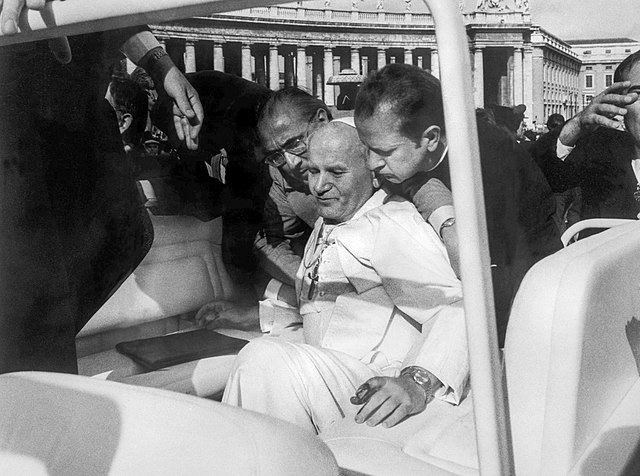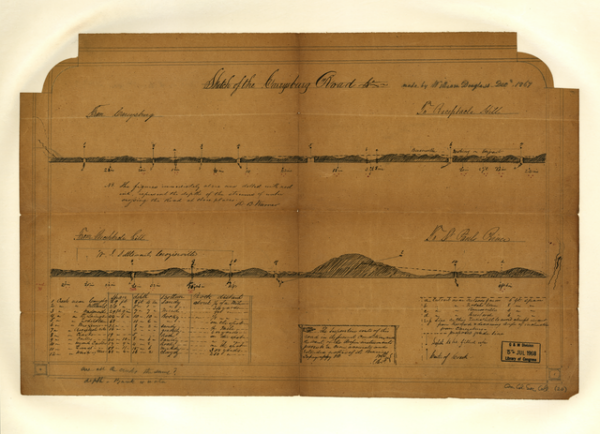On December 27, 1983, in a profound act of forgiveness and reconciliation, Pope John Paul II visited Mehmet Ali Ağca, the man who had attempted to assassinate him, in Rome’s Rebibbia prison. The meeting was a personal gesture of pardon and a powerful public statement that resonated with the Christian message of forgiveness. The visit took place just two and a half years after the assassination attempt on May 13, 1981, in St. Peter’s Square, where Ağca shot the Pope twice at close range, seriously wounding him.
The background to Ağca’s assassination attempt was complex and shrouded in mystery. Ağca, a Turkish national with a criminal background and ties to the far-right nationalist group Grey Wolves, had escaped from a Turkish prison while serving time for murder. His motives for the assassination attempt were never fully clarified, though he initially claimed it was part of a divine plan. After his arrest, there was widespread speculation about whether he had acted alone or had been part of a larger conspiracy, with some theories suggesting involvement by the Bulgarian secret service or the KGB, due to John Paul II’s outspoken opposition to communism.
Pope John Paul II’s visit to Ağca was private, lasting about 20 minutes, and the details of their conversation were never fully disclosed. However, it was reported that the Pope and Ağca spoke quietly together, and at one point, the Pope clasped Ağca’s hands within his own. The Pope later conveyed that he had forgiven his would-be assassin and that the conversation touched on topics of personal interest rather than politics or ideology. The image of the Pope, dressed in white, sitting across from Ağca in his prison cell, became an iconic representation of mercy and compassion.
The Pope’s act of forgiveness had a significant impact on public perception and discourse around the power of reconciliation. It was a practical demonstration of the Christian teachings that John Paul II had consistently advocated during his papacy. The meeting was also emblematic of the Pope’s broader efforts to promote peace and dialogue among people of different faiths and ideologies. His willingness to forgive Ağca was seen as an embodiment of the Christian principles he championed and a testament to his personal integrity and spiritual conviction.
The meeting between Pope John Paul II and Mehmet Ali Ağca remains one of the most memorable moments of his papacy, illustrating the depth of his commitment to the Christian values of forgiveness and redemption. It also served as an example to the world that even the gravest of wrongs could be met with understanding and pardon. The Pope’s gesture did not erase the gravity of Ağca’s act, but it did offer a path toward healing and set a precedent for personal and political forgiveness that would be remembered long after the event itself.






